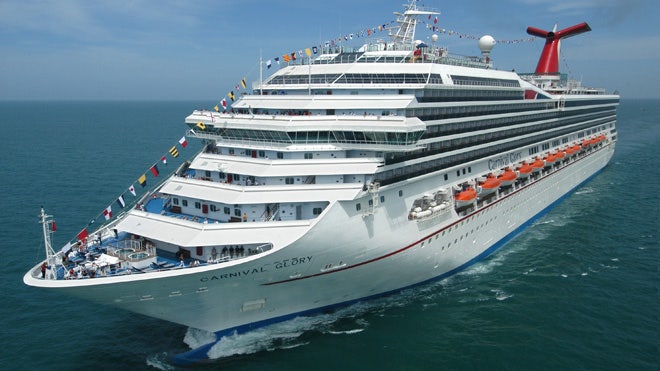Carnival Cruise False Alarm: When Safety Protocols Meet the Sea’s Mysteries
In a brief but intense moment of concern, the Carnival Radiance cruise ship paused its journey Thursday to conduct a search operation after passengers reported hearing a splash in the waters near Ensenada, Mexico. The incident, which ultimately proved to be a false alarm, demonstrates the cruise industry’s commitment to passenger safety while highlighting the sometimes unpredictable nature of ocean travel.
The alert began when several guests aboard the Carnival Radiance reported hearing what they believed might be someone falling overboard. Following standard safety protocols, the ship’s crew immediately turned the vessel around, returning to the area of the reported splash to conduct a thorough search operation. Meanwhile, staff members performed a complete headcount of all passengers and crew—a critical procedure that ultimately confirmed everyone was safely accounted for. A Carnival spokesperson later explained that the sound “could have very well been a whale,” though they acknowledged there was “no way to confirm that” with certainty. Once the verification process was complete, the Carnival Radiance resumed its regular itinerary sailing from Long Beach, California, to Ensenada, Mexico, which lies approximately 75 miles south of the U.S.-Mexico border near San Diego.
This incident comes at a sensitive time for Carnival Cruise Line, which recently faced a more tragic situation earlier this month when a passenger, Anna Kepner, was found dead on another Carnival vessel on November 7 while sailing in the Gulf of America. Kepner, described as a varsity cheerleader with aspirations of joining the Navy after high school and eventually becoming a K-9 police officer, was discovered deceased under circumstances that prompted involvement from federal authorities. The FBI has since been investigating the case, though Carnival representatives stated that there was “no related threat to safety aboard” the ship as it continued its scheduled voyage, returning to PortMiami as planned on November 8.
The false alarm aboard the Carnival Radiance underscores the comprehensive safety measures cruise lines implement to protect their passengers. Maritime law and industry standards require ships to respond immediately to any potential overboard situation—even when the evidence is as minimal as the sound of a splash. These protocols include the ability to quickly reverse course, deploy search teams, account for all persons aboard, and coordinate with coastal authorities and other vessels in the area if necessary. While such precautionary measures might temporarily disrupt a cruise itinerary, they reflect the paramount priority placed on human safety at sea.
For passengers aboard the Carnival Radiance, the incident likely served as an unexpected reminder of both the wonders and unpredictability of ocean travel. The splash that triggered the alert—possibly from a whale breaching the surface—represents the marine life that many cruise-goers hope to glimpse during their voyages. Mexico’s Pacific coast near Ensenada is known for its rich marine ecosystems, with several whale species migrating through these waters depending on the season. The momentary concern transformed into reassurance once all passengers were accounted for, allowing travelers to continue enjoying their vacation with renewed appreciation for the crew’s vigilance.
As cruise tourism continues to rebound following pandemic-related disruptions, incidents like these highlight the balance operators must maintain between delivering memorable vacation experiences and ensuring passenger safety. The cruise industry carries millions of passengers annually, with the vast majority of journeys concluding without incident. However, the ocean environment presents inherent uncertainties, from weather conditions to wildlife encounters, requiring constant vigilance from crew members. Carnival’s swift response to the potential overboard situation demonstrates how cruise lines have developed sophisticated protocols to address emergencies quickly and thoroughly, allowing passengers to enjoy their voyages with confidence that their wellbeing remains the highest priority.


